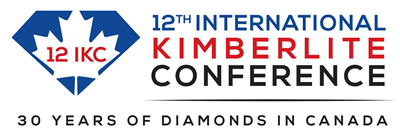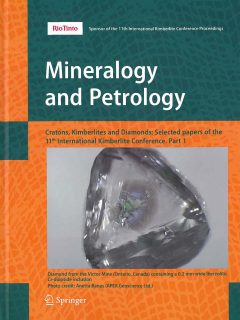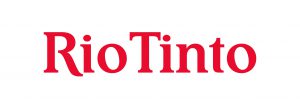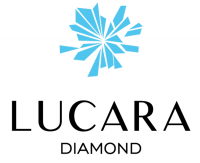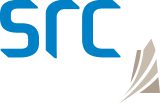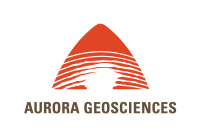Technical Programme
The Conference Technical Programme will be developed under the supervision of the Scientific Programme co-chairs, Graham Pearson and Thomas Stachel. We look forward to offering everyone a great programme for the upcoming 12 IKC in Yellowknife.
12 IKC invites submissions for oral and poster presentations that align with the five conference scientific themes below which reflect current and future academic and industrial interest in kimberlites and diamonds.
Please note that 12 IKC is implementing some changes to the way that the Technical Programme is organized compared to previous IKCs. Please read the text below carefully to understand these changes.
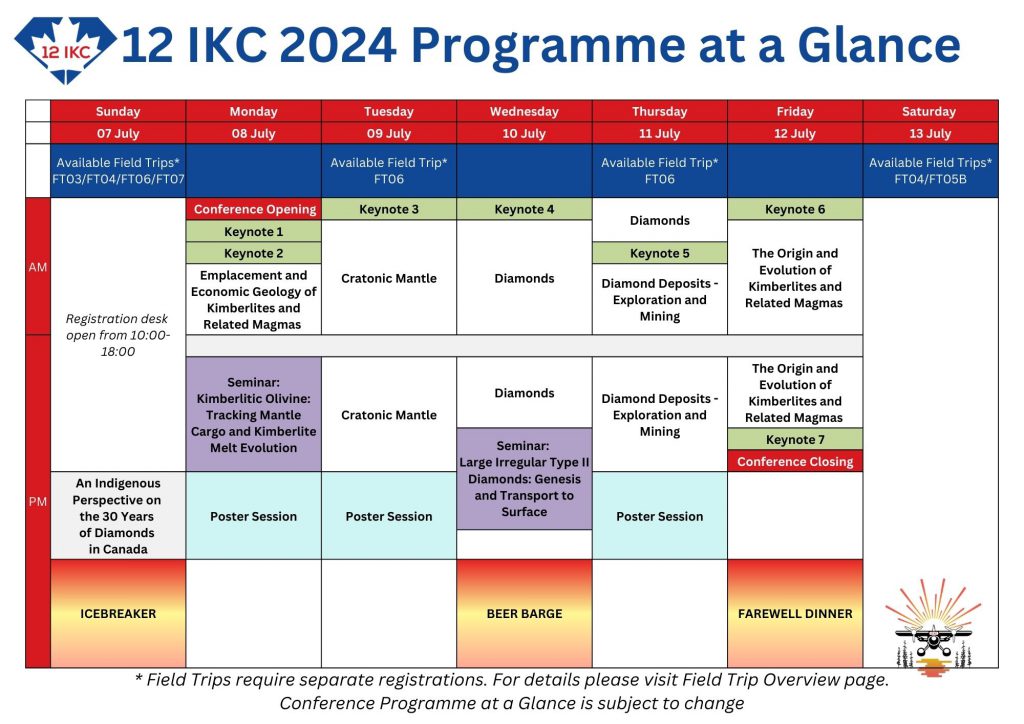
FULL PROGRAMME
The Conference Technical Programme has been finalised and you can view the Oral and Poster sessions by clicking the links below.
Long Abstract Volumes
The long abstracts are now published and available in the online Journal of International Kimberlite Conference Abstracts (JIKCA) at https://ikcabstracts.com/index.php/ikc .
This Journal provides in one place a complete record of all presentations, orals and posters, of 50 years of International Kimberlite Conferences. Not all of these presentations have associated publications in the IKC Proceedings Volumes.
Each individual Long Abstract will have its own DOI, will be indexed on Google Scholar, and will be citable literature. The DOI or digital object identifier is used to permanently identify a document and link to it on the web.
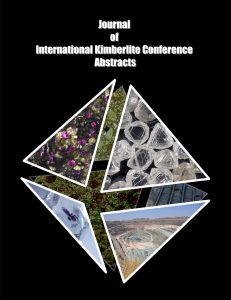
Presenter Guidelines
Requests for oral and/or poster presentation(s) must be accompanied by a short abstract. The submitting (presenting) author must have paid at least the 10% non-refundable deposit on the full delegate registration prior to submission. There will be no abstract submission fee.
- Short Abstracts are limited to 500 words of text, excluding title, author(s) and affiliation(s), and should be clear, concise and written in English.
- During online submission, the submitter needs to provide: a title, names and affiliations (including email addresses) of all authors, and a Short Abstract text of up to 500 Words.
- Should the Short Abstract be accepted, title and authors should remain the same on the Long Abstract.
- We recommend using a text editor to prepare and spell check the main body of text, before pasting into the online submission box.
- Tables, illustrations or photos cannot be submitted with the Short Abstract. There also are no references or footnotes.
- 12 IKC is unable to accept papers submitted by or presented on behalf of first authors from institutions based in Russia and Belarus.
Preference for inclusion in one of the five conference scientific themes should be indicated at the time of submission. The Short Abstracts will not be published. We recommend that each Short (and Long) Abstract is carefully compiled and thoroughly checked by all authors.
Each conference delegate is limited to submit as presenting author a maximum of two short abstracts, which may be for either
(i) one oral and one poster, or
(ii) two poster presentations.
The allocation of an oral presentation no longer comes with the mandatory commitment of producing a full paper for the Conference Proceedings Volumes although all such contributions will be welcomed.
The selection and acceptance of both oral and poster presentations will be at the discretion of the 12 IKC Technical Programme Committee. The preliminary allocation of oral versus poster presentation will be made on the basis of the unpublished preliminary Short Abstracts. Presentations will be selected using a variety of criteria. It is important that all contributions are relevant to (i) the overall IKC Technical Programme and (ii) the particular Scientific Theme to which they are submitted. Oral presentations will be selected via a combination of originality and importance / relevance of the work and in relation to the overall balance of the relevant session.
Final confirmation of oral or poster presentations will be made after acceptance of a suitable Long Abstract. The title and authors of the Long Abstract should be the same as the Short Abstract.
Long Abstracts can be up to three (3) pages in length.
Long Abstracts will undergo a light-touch review process for format as well as gross editorial and science errors. This process will be undertaken by the 12 IKC Technical Programme Committee and is not intended to be invasive but is designed i) to ensure that authors will have sufficient material of a new nature to justify a presentation, in particular, an oral presentation; and ii) to produce a high-quality output for publication of the Long Abstracts as citable documents. It is anticipated that most Long Abstracts will be accepted as submitted but revision of some will be requested and re-reviewed prior to final confirmation of oral / poster presentation. A few Long Abstracts may be rejected if (i) revisions are not submitted by the deadline or (ii) if the revisions are not satisfactory.
Conference Proceedings Volumes
All confirmed oral and poster presenters are encouraged to submit a full manuscript which will be considered for publication in the 12 IKC Conference Volumes. These papers will be subject to the standard peer-review process.
Following the success of the 11 IKC volumes, the 12 IKC Conference Proceedings will be published again as a Special Volume of the well-known and highly respected international journal Mineralogy and Petrology, published by Springer, that has an impact factor of 2.01 (2021). Mineralogy and Petrology (previously Tschermaks Mineralogische und Petrographische Mitteilungen) is one of Europe’s oldest geoscientific journals (since 1872). We anticipate that the Proceedings Volumes will be published within one year of the conference as with 10 IKC and 11 IKC.
In keeping with a long-standing tradition of kimberlite conferences, 12 IKC is intending to provide one free hard copy of the Proceedings Volumes to every fully registered conference delegate. As for 11 IKC, Rio Tinto are sponsoring the 12 IKC Proceedings Volumes.
Oral Sessions
In keeping with a long-standing tradition of kimberlite conferences, there will be single oral sessions on each of the five days of the conference (Monday to Friday; no concurrent or parallel sessions). The main orals will be 15 minutes in length plus an additional 5 minutes for discussion and changeover.
Poster Sessions
All posters will be on display for the entire week of the conference (Monday to Friday noon) with dedicated poster sessions Monday, Tuesday and Thursday from approximately 4pm. Each poster space (or board) is 3 feet 10 inches wide (117 cm) and 7 ft 10 inches high (239 cm), therefore posters need to be portrait orientation. Poster presenters are free to utilise all available space on the board as they see fit.
Conference Language
The 12 IKC conference language is English.
12 IKC Scientific Themes
- Diamonds
- Emplacement and Economic Geology of Kimberlites and Related Magmas
- The Origin and Evolution of Kimberlites and Related Magmas
- Diamond Deposits – Exploration and Mining
- Cratonic Mantle – Petrology, Geochemistry and Geophysics
12 IKC Scientific Themes Convenors
in order of themes
Diamonds
Thomas Stachel
University of Alberta
Karen Smit
University of the Witwatersrand
Yana Fedortchouk
Dalhousie University
Emplacement and Economic Geology of Kimberlites and Related Magmas
Kelly Russell
University of British Columbia
Barbara Scott Smith
Scott-Smith Petrology Inc.
Pierre-Simon Ross
L’Institut National de la Recherche Scientifique, Quebec
The Origin and Evolution of Kimberlites and Related Magmas
Bruce Kjarsgaard
Geological Survey of Canada
Andrea Giuliani
University of Melbourne
Geoffrey Howarth
University of Cape Town
Diamond Deposits - Exploration and Mining
Barrett Elliott
Northwest Territories Geological Survey
Maya Kopylova
University of British Columbia
Sasha Wilson
University of Alberta
Cratonic Mantle - Petrology, Geochemistry and Geophysics
Graham Pearson
University of Alberta
Sonja Aulbach
Goethe University, Frankfurt
Andrew Schaeffer
Geological Survey of Canada
